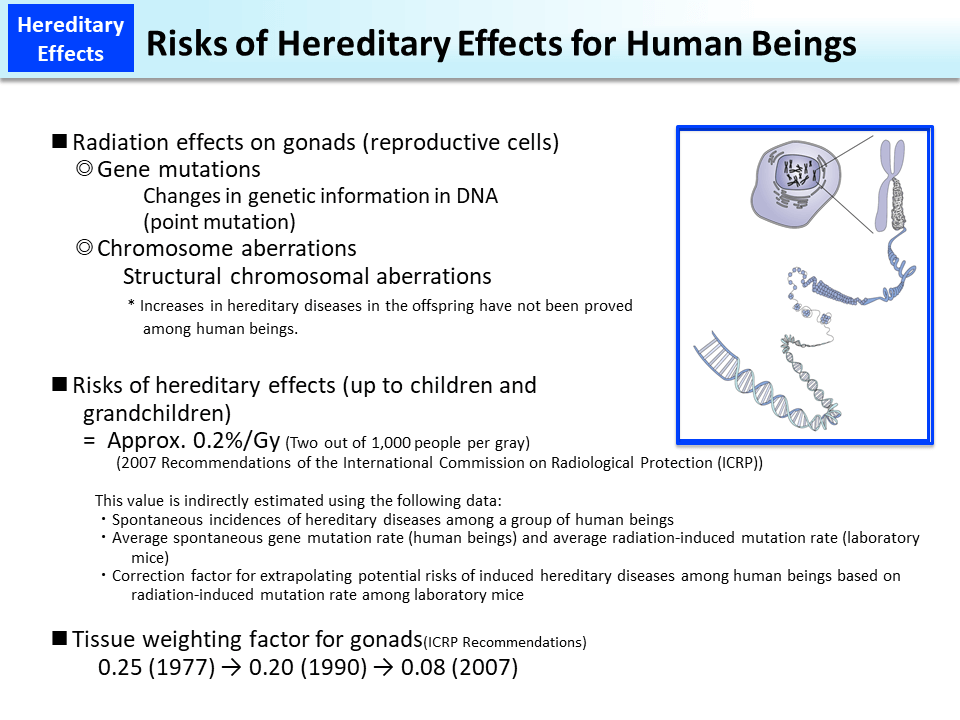Risks of Hereditary Effects for Human Beings
In animal testing, when parents are exposed to high-dose radiation, congenital disorders and chromosomal aberrations are sometimes found in their offspring. However, there has been no evidence to prove that parents' radiation exposure increases hereditary diseases in their offspring in the case of human beings. The ICRP estimates risks of hereditary effects as 0.2% per gray. This is even less than one-twentieth of the risk of death by cancer. Furthermore, the ICRP assumes that the exposure dose that doubles the spontaneous gene mutation rate (doubling dose) is the same at 1 Gy for human beings and laboratory mice. However, hereditary effects have not been confirmed for human beings and there is the possibility that this ICRP estimate is overrated.
Targeting children of atomic bomb survivors, follow-up death surveys, clinical health checks, and surveys on various molecular levels have been conducted. Results of these surveys have made it clear that risks of hereditary effects had been overestimated. Accordingly, the tissue weighting factor for gonads was reduced in the ICRP Recommendations released in 1990 and further in the ICRP Recommendations released in 2007.
- Included in this reference material on March 31, 2013
- Updated on February 28, 2018

